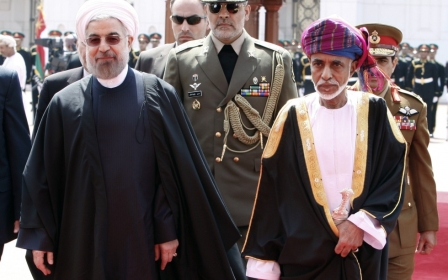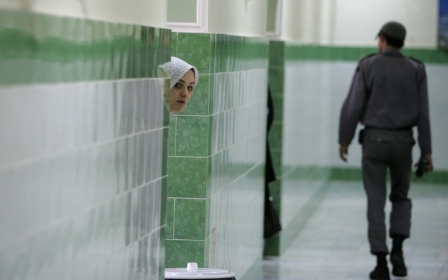Free political prisoners, urges Iran ex-president Khatami

TEHRAN - Iran's former president Mohammad Khatami has called for the release of political prisoners and urged an end to house arrest for two leaders who alleged fraud after the 2009 election.
In remarks published by ISNA news agency, Khatami, who was seen as a reformer during his time in office between 1997 and 2005, said such steps would benefit the country.
He was referring to Mir Hossein Mousavi and Mehdi Karroubi, fellow reformists that have been held incommunicado since February 2011, after they called for massive street protests following the election.
Thousands of protesters, reformists and journalists were arrested after demonstrations that became known as Iran's Green Movement.
"The lift on house arrests and the release of all those who are in prison is beneficial for the country, establishment and everyone," Khatami said, referring to the prisoners.
Stay informed with MEE's newsletters
Sign up to get the latest alerts, insights and analysis, starting with Turkey Unpacked
"Although the release has been already delayed for too long, many of them will be free soon providing that no other case is being built against them," Khatami was quoted as saying.
Khatami said a "change" in the country's political atmosphere was among expectations from the administration of self-declared moderate President Hassan Rouhani, who won a first-round electoral victory over conservatives last year.
"Even if they were freed one day earlier, it would be an auspicious matter and in regards with the lift on the house arrest, I hope it happens," Khatami added.
The fate of Mousavi and Karroubi - both of whom are reportedly suffering health problems - has attracted global attention and triggered heated debate at home.
Western powers and UN Secretary General Ban Ki-moon have repeatedly urged Tehran to release them from house arrest, and Iranian reformists have echoed those appeals.
Rouhani promised to resolve the issue and his officials have expressed criticism of the measures imposed on Mousavi and Karroubi.
In December, influential Iranian conservative lawmaker Ali Motahari said the judiciary should end the house arrests and put Mousavi and Karroubi on trial.
However, the decision rests with the Islamic republic's judiciary and the Supreme National Security Council. Judicial officials have in recent months said the restrictions on Mousavi and Karroubi will not be lifted unless they repent.
On Monday, prosecutor general Gholam Hossein Mohseni Ejeie, Iran's intelligence minister between 2005 and 2009, was quoted by official news agency IRNA as saying there was "no change" in the Mousavi and Karroubi cases.
Meanwhile, the opposition website Kaleme.com reported that Karroubi has expressed readiness to stand open trial, so that he could give his account of what he called the "engineering" of the 2009 election which led to Mahmoud Ahmadinejad's second term in office.
Middle East Eye delivers independent and unrivalled coverage and analysis of the Middle East, North Africa and beyond. To learn more about republishing this content and the associated fees, please fill out this form. More about MEE can be found here.




